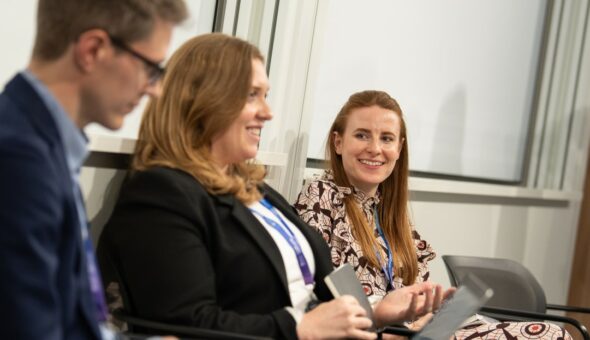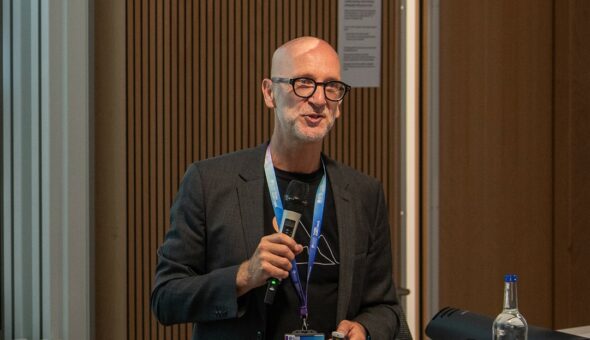To celebrate the launch of ‘Climate change and modern slavery in public procurement’, Dr Johanne Grosvold and Dr Mike Rogerson recently hosted an evening of discussion and networking at RSA House in London. In this post, the event’s three panellists share their thoughts on why modern slavery remains a hot topic.
Andy Davies, Head of Procurement at the Royal College of Art
The Modern Slavery Act was a huge leap in the right direction at the time, and it's one thing that I will always be grateful to Theresa May for. It has been the model for other jurisdictions to follow.
But has it really achieved anything? A fairly significant proportion of businesses in the UK that turn over more than £36 million per year still don't publish an annual modern slavery statement that meets the requirements of Section 54 of the Act.
Even those that do meet the legislation fall, in my opinion, a long way short of what they should do – and that is setting out year by year what actions are they taking to ensure that there is greater transparency in their business operations and in their supply chains to help tackle this scourge of our society.
I think it just goes to show that there is still a long way to go, and it feels like in nine years – particularly in about the last five – we've kind of come to a stop.
A few years ago, myself and a few other people in public service met regularly with the Modern Slavery Unit in the Home Office to discuss how we could move things forward in public procurement. Those meetings stopped about three years ago and we've gone nowhere since in terms of our collaboration.
Marisol Bernal, Affiliate Engagement Manager at Electronics Watch
I think we are still working on the issue because there is still modern slavery in supply chains. I think that because the legislation was a good starting point and there were recommendations to improve it, it looked like things were going in the right direction.
I know that passing the legislation was challenging , and the government had to cut things in order to pass it in the first place. The hope then is that you can improve it long-term.
The recommendations suggested that adding more into a company’s modern slavery statement should be mandatory, like what organisations are doing to prevent modern slavery, so that was a positive. But the recommendations are still there and nothing has happened, so the recommendations are just that: recommendations. The idea was that they were going to be implemented, but this has not happened.
So that's why we are still talking about it: issues are still happening and the legislation is weak, so we need to do more there.
Justine Carter, Executive Director at Unseen UK
My background was in the Civil Service; I'm now in the third sector; I've been a Deputy Police and Crime Commissioner, so I've seen this from all different sides. I think for me, I would take it back to the fact that if we say, ‘Has this really had any impact?’, of course it has. We wouldn't be sitting in this room if it didn't. I think it had a real ripple effect.
Sadly, the UK legislation wasn't where we wanted it to be and wasn't as strong as it needed to be. But for me legislations are blunt instruments. If we think that legislation is the be all and end all, then we're looking down the wrong lens. It should give us a framework, but what it should actually do is encourage businesses to want to do the right thing.
I often talk to our business clients and say, “Don't think about this as being compliant with the legislation, because you've already failed. If you're compliant with the UK legislation, you haven't gone far enough.”
We need to get to a position where we look at this as continuous improvement. We need to continue to keep pressing every year. We need to think: where have we come from? What have we learned? How are we going to apply it? How do we look at who we work with? How do we make sure that we apply appropriate due diligence throughout the supply chain?
Of course, that’s very easy to say and very difficult to do. For large businesses, in particular, we need to look at focusing on building capacity and capability throughout the supply chain, so that suppliers have a better understanding of what it is that that's expected of them and what they can do to make themselves less risky to others.
Respond



